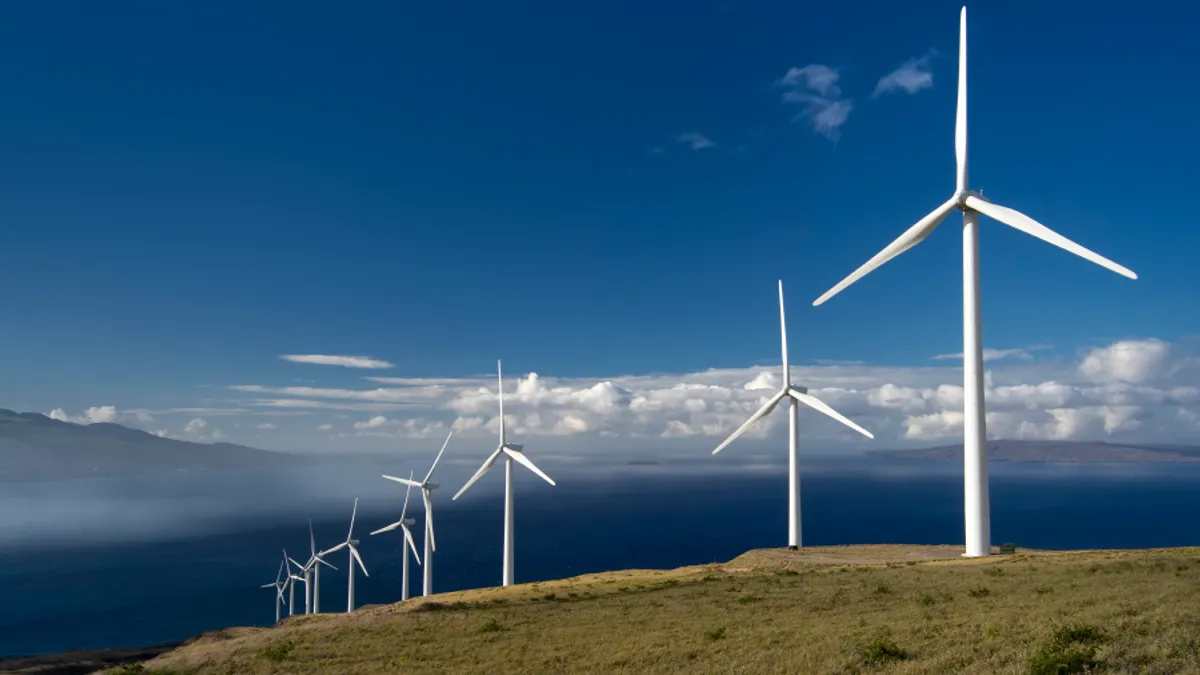Dive Brief:
-
Xcel Energy picked Minneapolis-based Mortenson Construction to build a $1 billion, 300-turbine wind farm at Rush Creek, in east-central Colorado, which will be the largest such single-phase facility in North America, according to the Star Tribune.
-
The project will have the capacity to produce 600 megawatts of electricity, and it will be Mortenson's largest wind project yet. The company's wind, high voltage transmission and heavy civil business units will provide full engineering and purchasing services for the project as well. Colorado-based Vestas will furnish the wind turbines.
-
Mortenson will start construction in May, with completion scheduled for the fall of 2018.
Dive Insight:
Peak construction at the wind farm is expected to generate 350 jobs and should boost Colorado's wind-energy production more than 20%, according to Mortenson. The project will also pay off for the state with approximately $180 million in landowner lease payments and property tax revenue.
As of late 2015, the company said it had completed or had underway 148 wind projects worth an estimated $343 million in 2014. At the time, the company announced it was launching a new business unit to provide engineering, construction and integration for commercial energy storage systems.
Mortenson is one of the top engineering, procurement and construction companies in the large-scale battery market and holds a significant place in the country's solar and transmission-project markets as well. It also is widely recognized as a premier sports venue contractor, a specialty-construction combination that led the company, at one point, to consider pursuing large-scale battery storage projects for stadiums, arenas and other sports facilities.
Last year Mortenson completed construction on the $1.1 billion Minnesota Vikings U.S. Bank Stadium, in Minneapolis, and is currently working on the $524 million Milwaukee Bucks arena.
The company is also getting underway with construction on the Golden State Warriors' $1 billion arena in San Francisco, with Clark Construction as its joint venture partner. Activists opposing the project took the Warriors to court in an attempt to stop construction, but, in January, the California Supreme Court cleared the way for the project to begin after it threw out the plaintiffs' request for a new environmental review.











